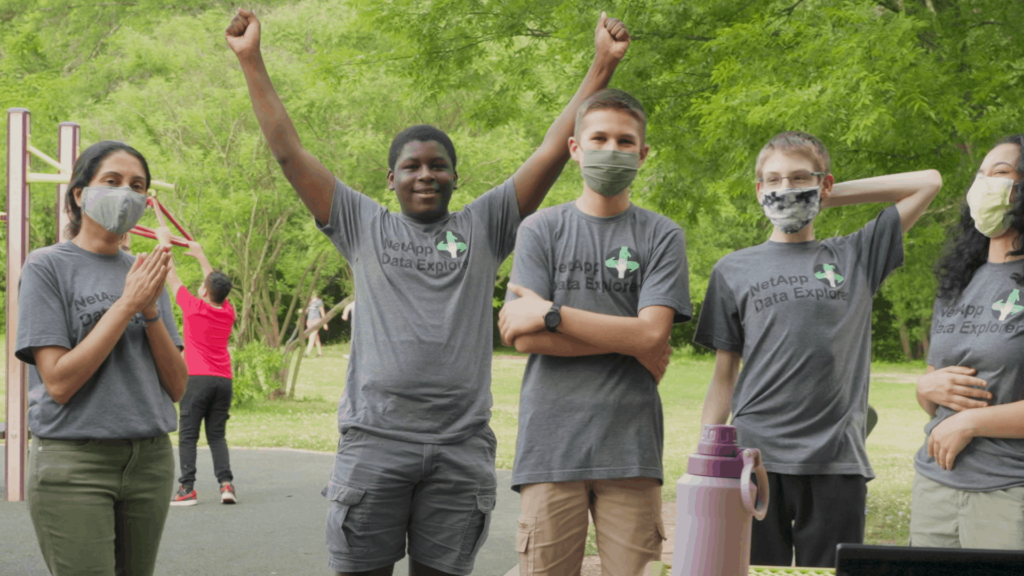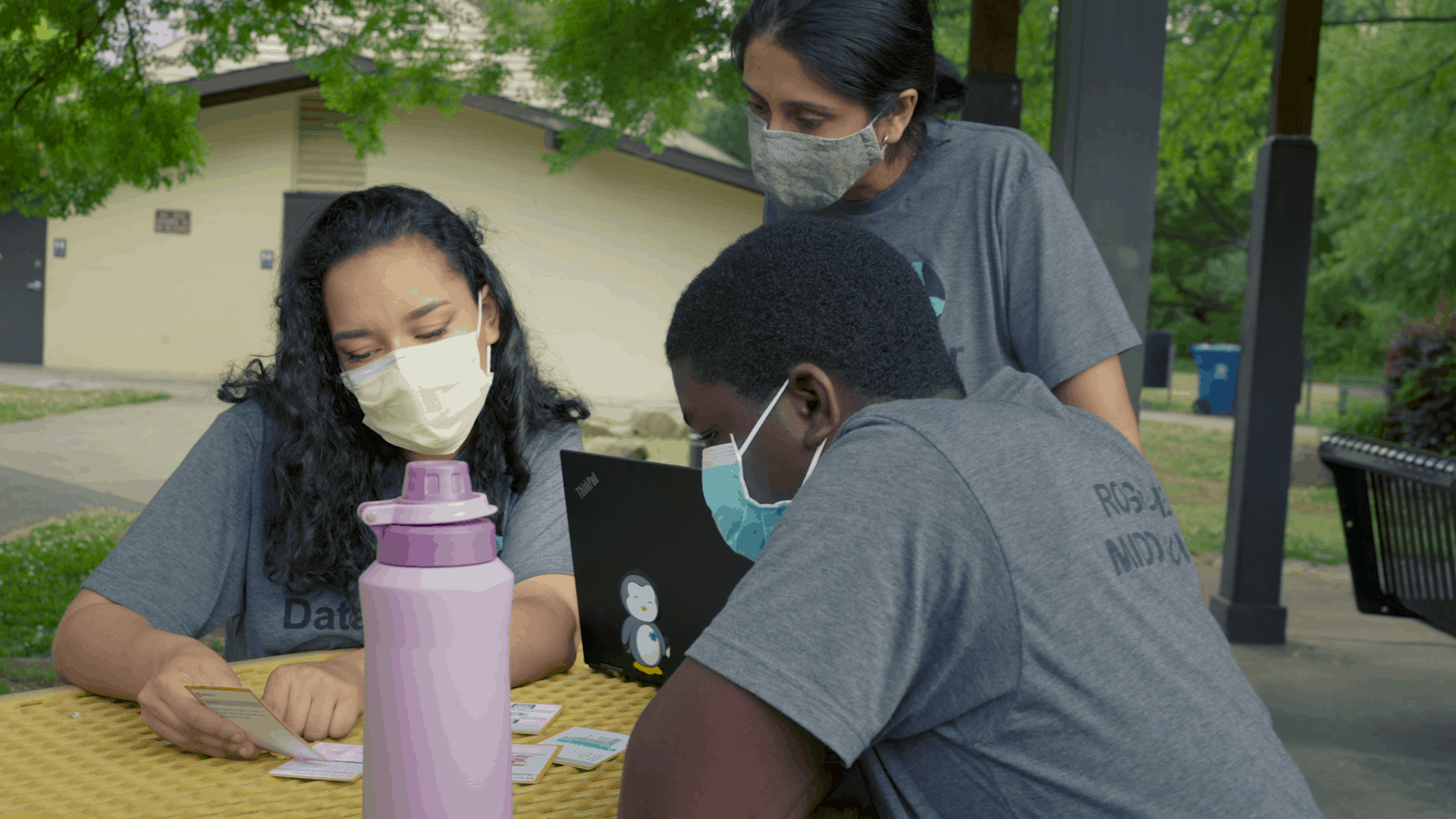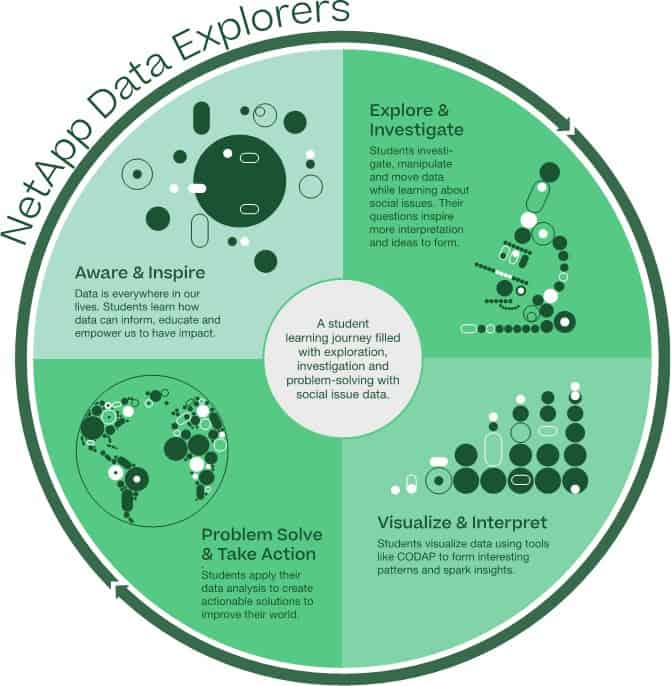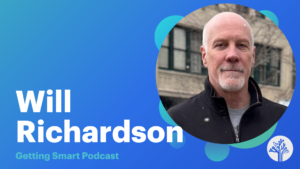Three Strategies to Engage Middle Grade Students in Data Science

By: Chad Dorsey
The amount of data available in our world is increasing at exponential rates and is increasingly essential to all aspects of our lives. Whether we consider the health and economic effects of the COVID-19 pandemic, the impacts of climate change on sea-level rise and extreme weather events, or the importance of data in the workplace, data is at the center of the most important issues of our globe. As we help our youth prepare for societal and personal challenges on local and global scales and witness the powerful intersection of data exploration and social justice issues, the ability to understand and work with data has never been more critical.
Data also provide significant opportunities for engaging youth with personally relevant problems that have significance to the real world. Data can help open up youths’ understanding of and connection to central societal issues. And conversations centered on data can be important jumping-off points for connecting youth with their communities and bringing community members together around issues of common concern.
It is an exciting time for data science education, and many new opportunities are emerging for teaching and learning. As we consider a trio of these—examples focused on engaging underrepresented and marginalized middle-grade students with data science topics across geographies, cultures, and population sizes—three key learnings stand out.
Use opportunities both in and out of school to explore data
While coherent curricula within a classroom setting can be critical for building a formal understanding of mathematical concepts and competencies including the data concepts built into current standards, activities that leverage out-of-school time can offer powerful opportunities. Afterschool experiences and programs can help youth explore data in low-stakes environments where they can make their own choices about what they pursue, freed from narrow classroom constraints.

In one out-of-school model, a 12-week curriculum titled Data Explorers, developed by TERC through funding and partnership with NetApp and in collaboration with the Concord Consortium and the India STEM Foundation, students aged 11-15 investigate datasets addressing the United Nations Sustainable Development Goals (SDGs). They learn how to question, interpret, and visualize data using data analysis software, the Common Online Data Analysis Platform (CODAP), and work in teams to solve problems around a social issue of concern—all to begin their data science journey. The NetApp Data Explorers program focuses on data awareness using data tools and games and complex datasets and visualizations with the goal of helping underrepresented students become more fluent with data.
The program was piloted in the 2020-2021 school year as part of afterschool clubs in Durham, North Carolina, and Bangalore, India, two of the 30 NetApp office locations around the globe. According to one of the teachers at the Rogers-Herr Middle School in Durham, “This experience was the most engaged I have seen the students all year.” She also raved about CODAP, describing how it easily engaged students in data exploration. “The chart animations are great,” she said. “And the kids enjoyed being able to make their own data visualizations.”
Another project, run by Science Education Solutions, engages underserved youth across the country in “Data Detective Clubs.” The National Science Foundation-funded COVID-Inspired Data Science Education Through Epidemiology project includes out-of-school activities based on The Case of the COVID Crisis, a young adult adventure novel that follows two middle school students on a time travel adventure as they visit epidemics of the past and present. As students encounter stories about measles, smallpox, the 1918 flu, Ebola, and COVID-19, they learn historical facts about the diseases, use the CODAP software platform to explore authentic epidemiology datasets, and learn about the power of science—and data science—to find cures.
Use data as a novel medium of expression
Data can also be an outlet for unlocking and exploring young people’s creativity. A third project, the National Science Foundation-funded Writing Data Stories project at the University of California Berkeley, encourages middle school students to tell data stories about questions that matter most to them. By drawing on students’ natural desire to express themselves and make sense of the world, this project helps students recognize that data can be used for expression.
Working on the assumption that learners should view data as a medium, this project familiarizes youth with “data moves,” helping them learn to filter, transform, join, and summarize data, moving and navigating within it as an artist does with paints or a poet with words.
In Writing Data Stories, youth analyze existing scientific datasets about important socio-scientific issues, using data not only to answer questions about climate change affecting the places they care about but also to tell a story to inspire action. More than simply screenshots or static data visualizations, the visualizations they produce act as interactive stories of their journeys in learning about the topic. Other youth can explore these stories in turn and find their own data-based discoveries within them.
In their data stories, the youth also record information about where the data come from and explain why the data are important, what is included or excluded, and how they wrangled the data into a useful form. Exploring patterns, tensions, and omissions in public scientific datasets and considering how they reflect—or don’t reflect—their everyday personal experience helps youth understand how data relates to injustices in their world and helps them see datasets as shared, human-produced knowledge. In the process, the project empowers youth to transform and reorganize datasets to better reflect their new perspectives.
Take action with data
In all of these cases, data has the ability to empower students, giving them new lenses with which to see the world. Youth who are data fluent have the power to explore and investigate real-world datasets, asking questions of the data and looking for answers in it. As they visualize data to form patterns and spark insights, they can apply their analyses to create actionable solutions to improve their world.
In the NetApp Data Explorers program, groups of youth create a final project focused on a social impact topic from the United Nations SDGs. Students research issues of poverty, health, education, sustainable cities and communities, and climate action, then formulate research questions, organize and validate data, and create data visualizations for awareness campaigns and posters, which they present in a project showcase. In the Writing Data Stories curriculum, youth write a narrative argument to complement their data analysis that aims to inspire their audience to take action to change a problem.
Both the NetApp Data Explorers and Data Detective Clubs also provide youth with opportunities to meet practicing data scientists and researchers. In Data Explorers, NetApp employee volunteers coach students through their capstone projects and share personal stories of the different ways they use data in their careers—data that can change the world.
Using these approaches to build for the future
Data education can take many forms, but all have the opportunity to change youths’ view of what data are and how data can help them to make a difference in the world. To help provide these opportunities to more learners in more places, we need tested, flexible data education curricula that can work across different communities and circumstances. With a diverse set of approaches, youth can come to recognize the power of data wherever they learn, both in and out of school. Locations ranging from museums to libraries, afterschool clubs, school programs, and more should be able to serve as hubs for data-intensive community inquiry projects across the world. These great examples serve as inspiring starting points for preparing tomorrow’s data-fluent citizens and workers.
For more, see:
- Learner-Centered and Project-Based Middle Schools
- The Power of Place: Authentic Learning Through Place-Based Education
Chad Dorsey is President and CEO of the Concord Consortium.
Stay in-the-know with innovations in learning by signing up for the weekly Smart Update.






TechyKids Canada
The way how technology is evolving, a career in data science can help today's generation to strive in coming years. Thanks for sharing such an informative post!